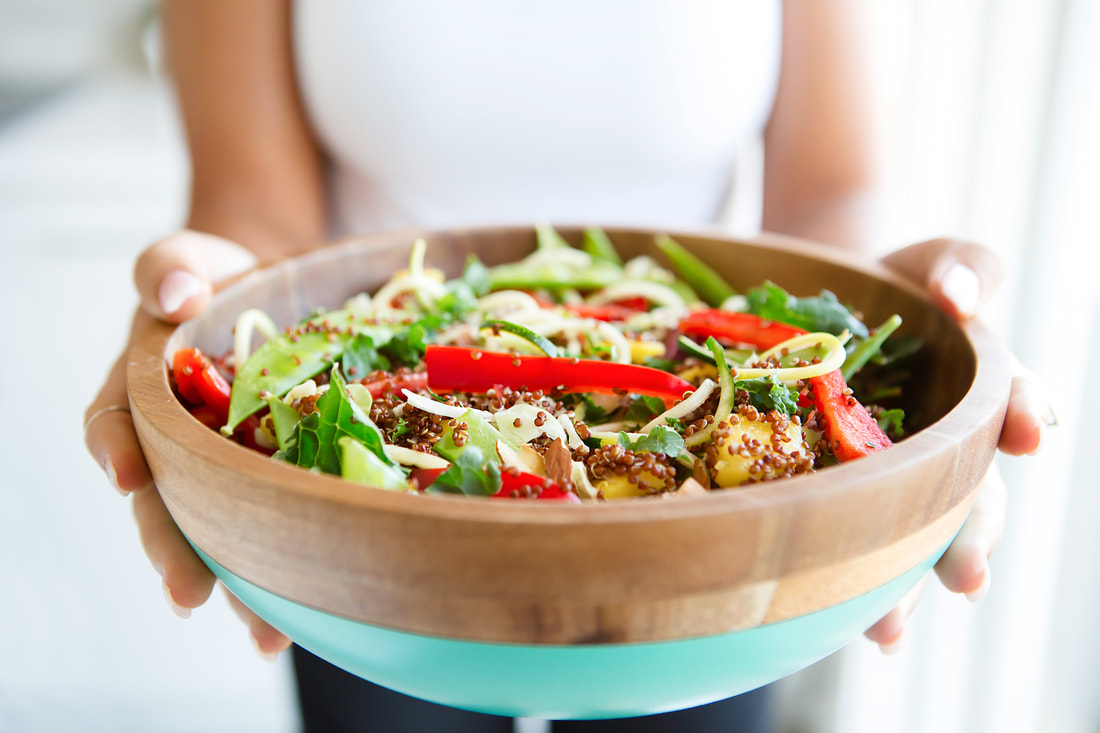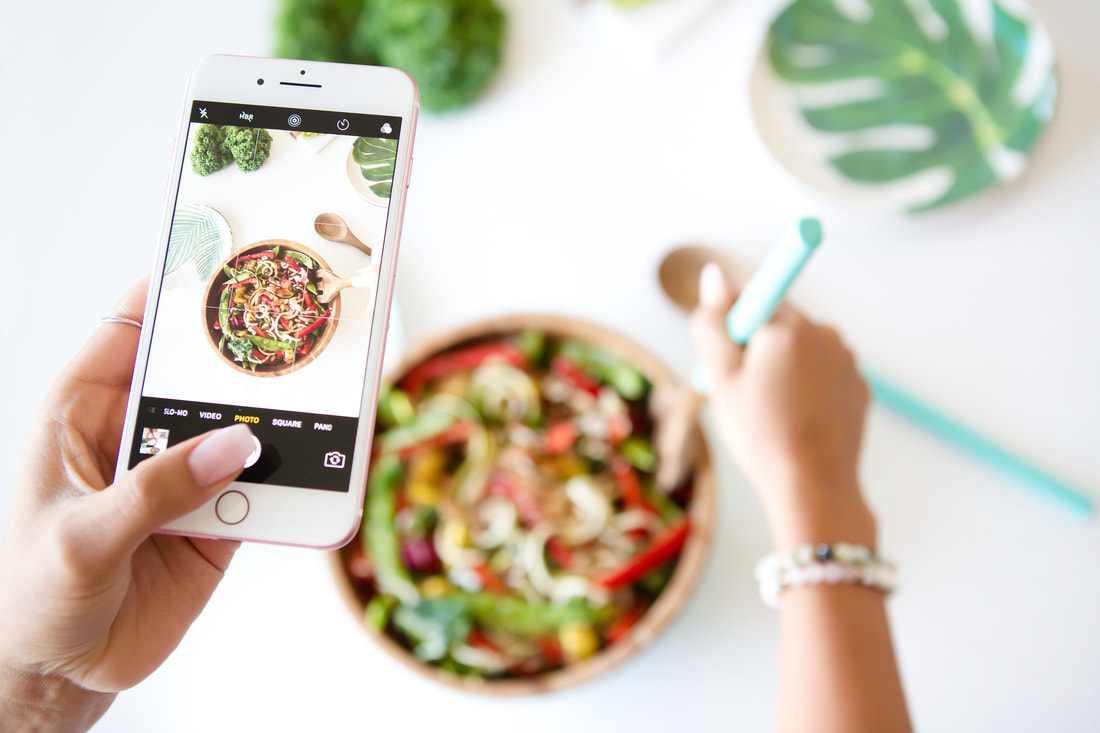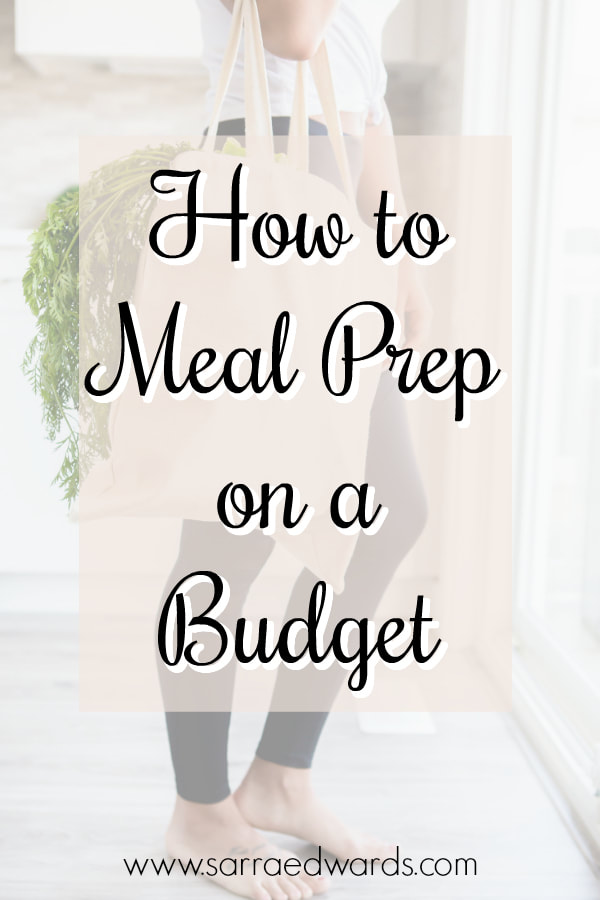|
Meal prepping is my secret weapon for losing weight, maximizing time, and cutting grocery costs. People who spend more time thinking about and preparing ahead what they're going to eat make better choices, like incorporating more fruits and veggies (turns out, those are kind of important). Some people think meal planning and prepping is crazy expensive, but it can actually be very kind of your wallet (as well as help you lose some weight around the waist - bonus!). Ready to get planning and save yourself some serious cash while eating healthier and getting in shape? Here’s how! 1. Make a PlanA great first step in saving some cash is to have a solid idea of your food needs throughout the week before you do anything else. Stop and think about the week ahead. Where will you be at mealtimes (home, work, on the move)? Will you have the means to reheat food? Does your family have any activities on certain nights? What do you actually want to eat this week? That last question is the most important; I like to check in with family members and see if there is anything they're craving, so I can work it into our weekly meal plan. Having that plan prevents me from spending money on things we don't need at the grocery store! 2. Make a Healthy Grocery ListOnce you’ve thought about the clean, healthy, nutritious meals you’d like to have ready to go when you want them this week, work backward to come up with a grocery list. The biggest expense will be your protein. Getting the chicken thigh instead of the chicken breast can be less expensive and not a huge difference in the nutritional profile. Or use canned tuna instead of fresh tuna for some of your meals. Beans or lentils are also a good (and less expensive!) alternative protein source instead of meat. Once you’ve made your list, think about where each of the items can be bought at the best price and get your groceries on a day when you’re not rushed. Some quick tips to save some money at the store:
3. Stick to the ListEver gone to the store to buy groceries and come home to find that you bought a lot of things you hadn’t planned on and maybe even forgot some things you meant to buy? Turns out that supermarkets put a considerable amount of time, money, and effort into making sure that customers stray from their lists and make impulse purchases. That’s bad for your budget and, because impulse buys are generally not the healthiest items, bad for your overarching health goals, too. And you’ve probably heard that going to get groceries with a rumbling belly is a bad move for your weight-loss goals. Well, a 2013 study showed that when people go shopping when they’re hungry or they’ve gone a long time without eating, they tend to buy foods with a higher caloric density. 4. Shop the Bulk Foods AisleWhat do beans, grains like quinoa and barley, nuts, seeds, rice, and legumes have in common? Most supermarkets offer these items in bulk bins. Not only does shopping in bulk save you money because you’re not paying for the fancy labels, you can also take as much or indeed as little as you need — meaning that you can experiment with new things and new meals without getting stuck with something that’s not up your alley. Beans – rich in both protein and fiber – are particularly cheap when bought dry and from the bulk bins. Soaking them might sound like a hassle but if you’re already planning your meals for the week, it ain’t no thang. To save even more time, you might consider investing in a pressure cooker or Instant Pot. One upfront cost might be to get some airtight jars to store them in. Put them on a shelf (avoid placing them in direct sunlight), and they have the added bonus of making your kitchen look pretty homey too. 5. Shop LocalShop local. The farmers market can be a win-win: You can find fresh, locally grown food that may actually be cheaper than what’s at your grocery store. So if you come across fresh produce at your local farmers’ market, then, by all means, add them to your week’s meals! 6. Go BigConsider investing in an annual membership to a wholesale market like Costco, especially if you’ve got a family. One caveat: Get your quantities right. The savings you make by bulk buying will disappear if you don’t eat what you buy before it goes bad. Plan ahead (sense a theme here?) and figure out what can be stored in the fridge and what you can freeze for later. If you’re freezing food, write the date on the package or container so you don’t have to guess whether you should keep it or toss it when you defrost. 7. Get CookingYou had a bulk mindset when you bought this stuff, and to really unlock your savings, you should adopt a bulk mindset when cooking. Set aside a few hours on a Sunday (or whatever day is most convenient) putting together three or four dishes that can be frozen in batches to give you the benefits of variety and economy. And make sure you're paying attention to portion sizes when you split up your meals! If you are not measuring your portion sizes you could not only be consuming too much food and costing more money. By keeping foods at the correct portion size you will be trimming your waistline and also trimming costs. Save Time, Save MoneyIt may seem daunting at first to plan an entire week of meals, shop, then cook it all. But if you stick with it and start meal prepping on a regular basis, you’ll figure out what works/what doesn’t work, and you’ll save yourself time and money. Article by: Lili Ladaga and Grant Stoddard
1 Comment
5/15/2018 09:35:57 pm
Nice article - we have started buying the meal plans from Hello Fresh and Sun Basket. They are a little on the pricey side but they massively simplify the meal planning process. Have you tried those? They send you the ingredients and the recipe etc - pretty healthy and tasty!
Reply
Leave a Reply. |
Categories
All
Archives
September 2018
|






 RSS Feed
RSS Feed